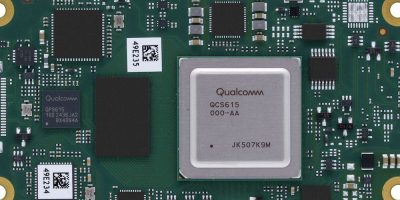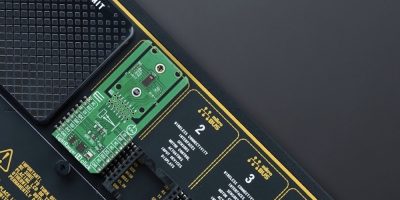Tria Technologies has introduced the TRIA SM2S-IQ615 and TRIA OSM-LF-IQ-615 modules, marking commercial availability of computer-on-module (COM) worldwide featuring a Qualcomm Dragonwing IQ-615 processor. The modules provide AI-ready industrial-grade performance and robust peripheral support within a power-efficient and developer-friendly design, enabling developers and engineers to push the boundaries in edge AI.
Both the SM2S-IQ615 SMARC (Smart Mobility ARChitecture) module and TRIA OSM-LF-IQ615 (Open Standard Module) feature the Dragonwing IQ-615 Processor and integrate Qualcomm Kryo Gen 4 CPU with a 64-bit Octa-Core processor and a powerful Qualcomm Adreno 612 GPU, bringing performance and energy efficiency to Linux-based edge applications. The Qualcomm Hexagon V66 DSP with Dual Hexagon Vector, enables developers to create more capable, cost-effective, and energy-efficient machine learning (ML) applications.
“We are proud to deliver the industry’s module-based access to the Dragonwing IQ-6 Series,” said Markus Mahl, Senior Product Manager at Tria Technologies. “Our collaboration with Qualcomm Technologies ensures Tria customers are first in line to take advantage of the very latest advancements in edge-AI processing capabilities.”
Developers can now begin projects with the Dragonwing IQ6 Series in earnest, from developing and optimising software for the Dragonwing IQ-615 or AI model tuning, to conducting real-world performance testing, benchmarking, and validation. Both modules feature Yocto Linux BSP as standard, with Ubuntu Linux OS support also available on request.
“Dragonwing processors are designed to provide high-performance, low-power edge computing and on-device AI, enabling industries to achieve new heights of innovation and efficiency,” said Christian Bauer, Product Marketing Manager at Tria Technologies. “Combined with our proven design expertise, the embedded compute boards are enabling rapid development and deployment across a wide range of industries. Both the TRIA SM2S-IQ615 and TRIA OSM-LF-IQ615 are designed for ease of use and offering both SMARC and OSM form factors helps accelerate product development cycles, providing scalability and flexibility that reduces costs and simplifies design with a wide range of interface options.”
“Tria Technologies’ latest portfolio expansion with the SM2S-IQ615 and OSM-LF-IQ615 modules marks a significant milestone in our joint commitment to advancing edge AI”, said Douglas Benitez, Senior Director, Business Development at Qualcomm Europe, Inc. “By bringing the powerful edge computing capabilities of the Dragonwing IQ-6 Series to market, Tria Technologies is enabling customers to accelerate industrial innovation – powering next-generation industrial gateways, machine vision solutions, HMIs, controllers and more.”
Developers can also benefit from advanced security features including Secure boot, secure debug, TrustZone and Qualcomm® Trusted Execution Environment and hardware supported KeyStore. Additionally, both modules provide fast and low power LPDDR4 memory technology, combined with up to 256GB eMMC Flash memory.
An extensive set of interfaces for embedded applications are available, such as Dual Gigabit Ethernet, PCI Express Gen. 2, USB 2.0/3.1, DP v1.4, MIPI-DSI, LVDS, and up to 3x MIPI CSI-2 for connecting cameras. This makes it ideal for embedded vision, machine learning, and multimedia applications.
Both modules are available with development kits and board support packages to accelerate integration and prototyping.
The SM2S-IQ615 module is compliant with the SMARC 2.2 standard, allowing easy integration with SMARC baseboards, and the OSM-LF-IQ615 module is compliant with the OSM 1.2 standard (OSM-SL).
SMARC is one of the best and most future-proof standards for small form factor embedded designs, ideal for products that require compact embedded computing without compromising on processing capability.
OSMs are designed to provide the smallest possible form factor with a focus on versatility. For a growing number of IoT applications, this standard helps to combine the advantages of modular embedded computing with the increasing demands on cost, space, and interfaces.







